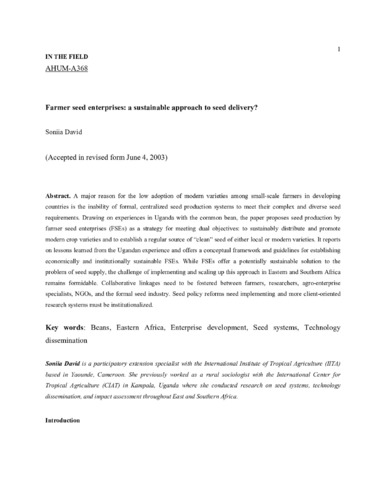Farmer seed enterprises: a sustainable approach to seed delivery?
A major reason for the low adoption of modern varieties of seed among small-scale farmers in developing countries is the inability of formal, centralized seed production systems to meet their complex and diverse seed requirements. Drawing on experiences in Uganda with the common bean, the paper proposes seed production by farmer seed enterprises (FSEs) as a strategy for meeting dual objectives: to sustainably distribute and promote modern crop varieties and to establish a regular source of “clean” seed of either local or modern varieties. It reports on lessons learned from the Ugandan experience and offers a conceptual framework and guidelines for establishing economically and institutionally sustainable FSEs. While FSEs offer a potentially sustainable solution to the problem of seed supply, the challenge of implementing and scaling up this approach in eastern and southern Africa remains formidable. Collaborative linkages need to be fostered between farmers, researchers, agro-enterprise specialists, NGOs, and the formal seed industry. Seed policy reforms need to be implemented and more client-oriented research systems must be institutionalized.

